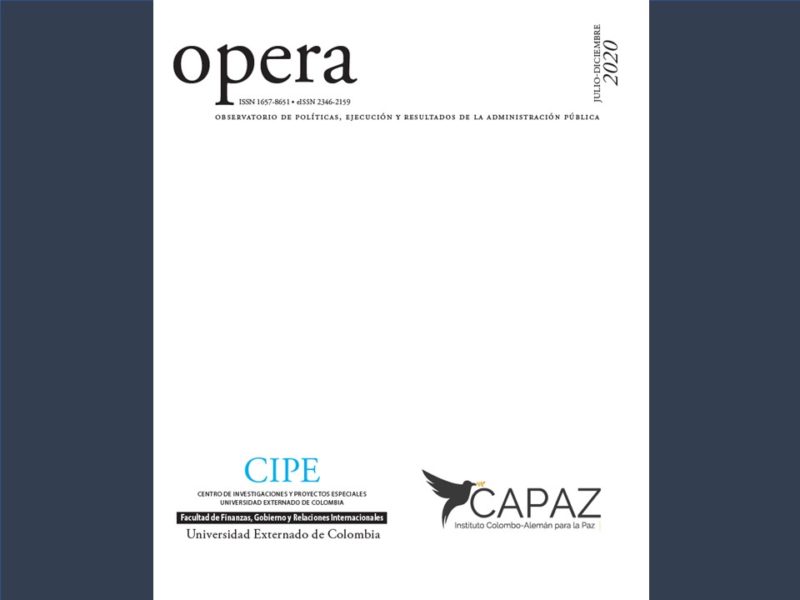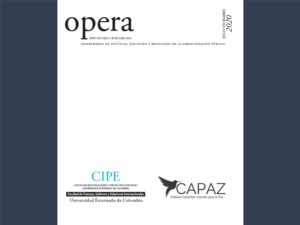
Revista Ópera 27. Latest issue focusing on the CAPAZ-Externado collaboration

Cover Opera No. 27
Issue No. 27 of Revista Ópera produced by Universidad Externado de Colombia, one of the CAPAZ founder members, has just been published.
This issue on science, knowledge and peace, was co-edited by Alejandro Balanzó, Juan Pablo Centeno and CAPAZ Administrative Director Carlos Nupia. It focuses on the results of a workshop organised by CAPAZ together with Universidad Externado de Colombia in December 2018, and the discussion on science and peace organised for the GCTI (Knowledge Management and Governance) Network Congress in August 2019.
Access Revista Ópera No. 27 here (in Spanish; la edición impresa en proceso)
The editors coordinated the call and peer review, as well as writing the article included in this this issue and entitled: “Scientific knowledge, heterogeneous knowledge, and peace building: towards a research agenda on policy and governance of knowledge in transitions to peace”.
The following is a summary of the contribution:
“¿How can relationships between heterogeneous sources of knowledge – including scientific ones – be more beneficial to peacebuilding? After a brief overview of the state of the art to fuel the discussion, the article addresses the question by building on the concept of epistemic diversity. A comprehensive analytical heuristic is proposed, based on previous academic exercises, which categorises: 1) levels of knowledge management and use, 2) types and nature of knowledge at stake, and 3) knowledge products on peace. This text describes and discusses the articles that are part of this dossier in the light of such references and situates some points of interest for a research agenda: 1) to expand the reflection on knowledge about or for peace; 2) to deepen the phenomena of interaction between science and other types of knowledge, which touches on various repertoires, fields and levels of interaction and modes of encounter; and 3) to provide feedback on the available theoretical background on the governance of heterogeneous knowledge in transformative contexts, with special focus on the theory and practice of public policy in science, technology, and innovation”.
Access the article here (in Spanish)
(NW Text: Claudia Maya, Carlos Nupia. English version: Tiziana Laudato)



